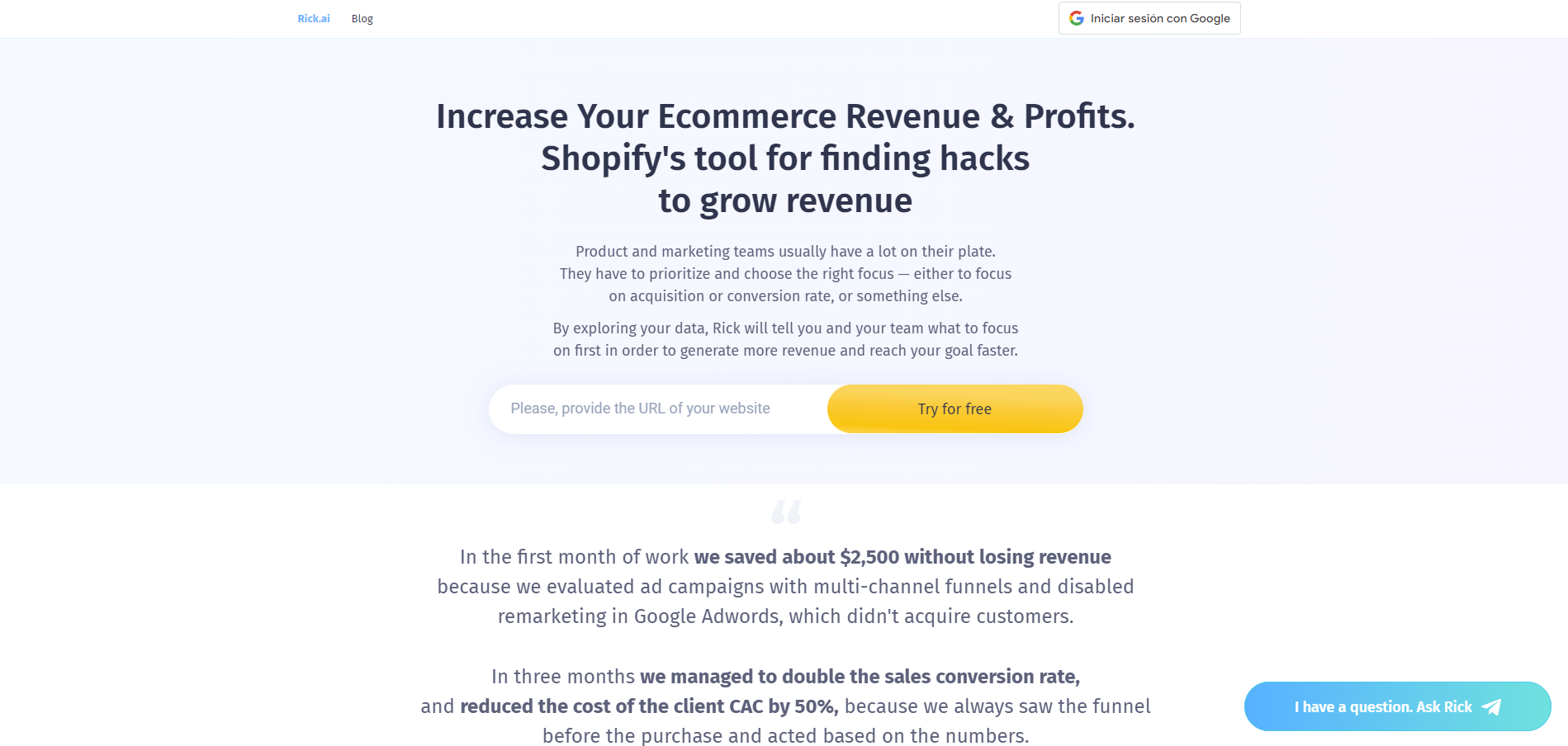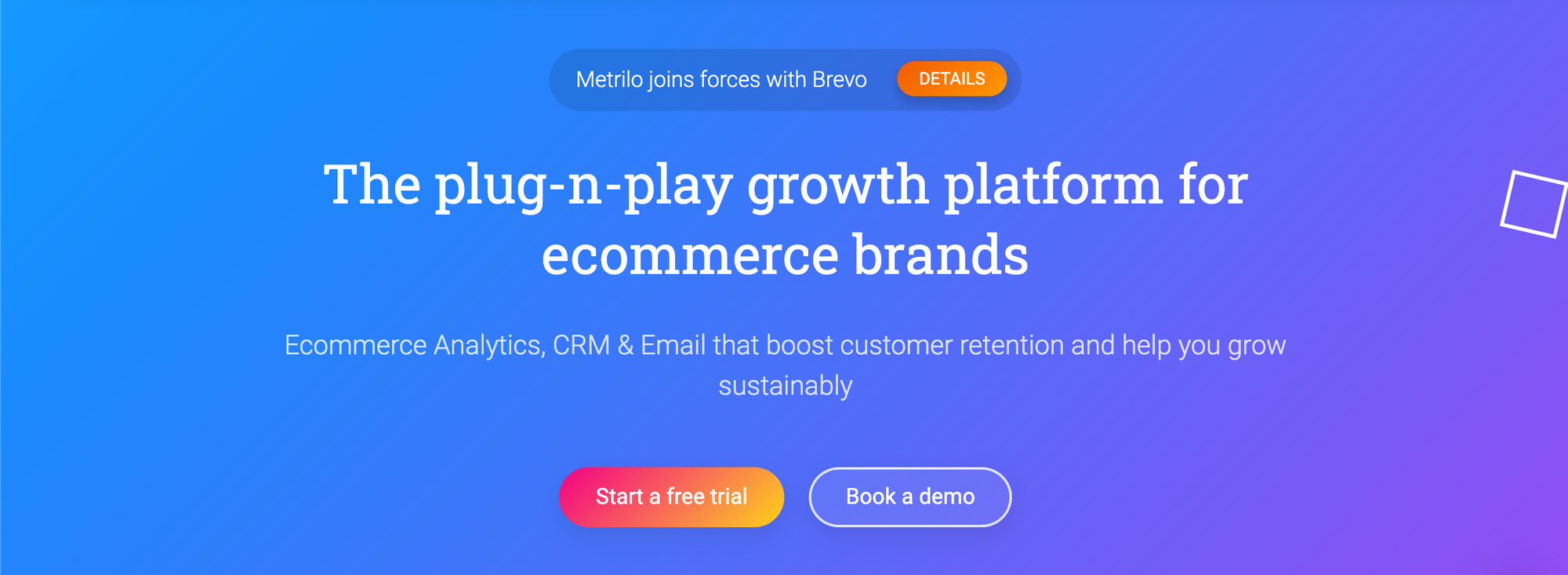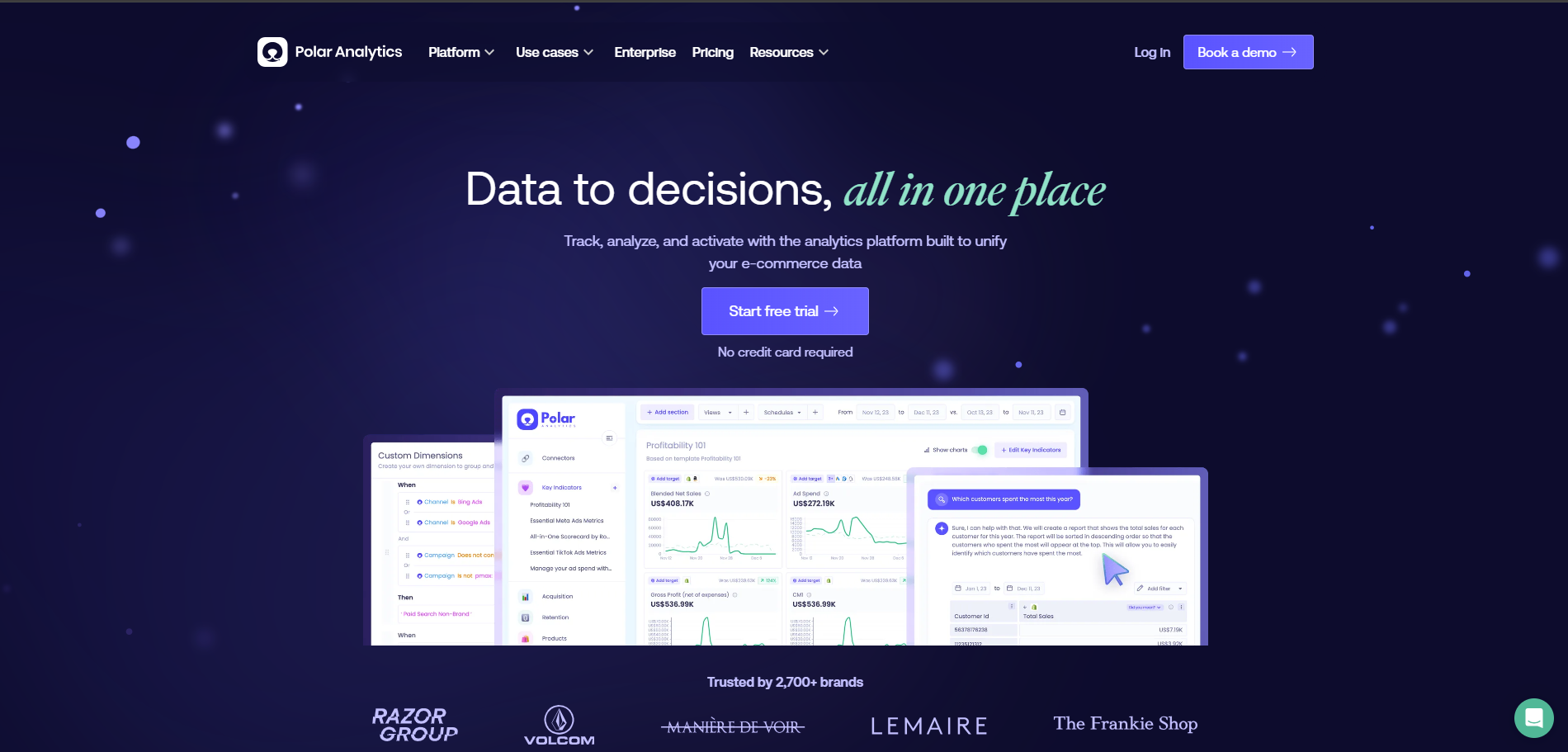Best 5 analytics tools for Shopify in 2024: boost your e-commerce success
Managing a thriving Shopify store goes beyond offering quality products and an intuitive website. To truly succeed, leveraging data analytics is essential. This enables you to understand customer behaviors, track performance metrics, and refine business strategies.
Choosing the Ideal Analytics Tool
Selecting an analytics tool for your Shopify store involves various considerations. However, the most crucial factor is data accuracy. A sophisticated interface is meaningless if the data it provides is unreliable. Accurate data is vital for making informed decisions that drive growth.
Business needs and goals:
- Identify the critical metrics for your business.
- Seek tools with features that align with your goals.
Data accuracy:
- Ensure the tool provides precise, reliable data.
- Look for tools with proven methodologies.
Integration capabilities:
- Choose tools that seamlessly integrate with Shopify and other platforms.
- Ensure it consolidates data from multiple sources for a holistic view.
Customization and flexibility:
- Opt for tools that allow custom reports and dashboards.
- Ensure the tool can scale with your business and handle complex data.
Support and resources:
- Check for reliable customer support and documentation.
- Ensure there are tutorials and training resources to maximize the tool’s potential.
Top Analytics Tools for Shopify
1. Google Analytics

Google Analytics is a robust, free tool providing comprehensive insights into website traffic and user behavior. It's widely used for its powerful tracking capabilities and integration with other Google services like Google Ads.
Key features:
- Offers in-depth information about visitors, including geographic location and device usage.
- Monitors product performance, sales, conversion rates, and revenue.
- Allows for tailored reports and dashboards.
- Seamlessly integrates with Google Ads and Google Search Console.
Pricing: Free for the standard version; Google Analytics 360 offers advanced features with pricing based on specific needs.
Pros:
- Extensive data collection and reporting.
- Easy integration with Google services.
- Free for most businesses.
Cons:
- Steep learning curve for beginners.
- Requires manual setup for advanced tracking.
- Doesn’t provide actionable advice.
Best For: Tech-savvy businesses seeking a free solution with detailed traffic analysis.
2. Rick.ai

Rick.ai is a comprehensive analytics tool tailored for Shopify stores. It provides insights into customer behavior, sales trends, and marketing effectiveness.
Key features:
- Tracks sales and marketing campaigns with detailed reports.
- Allows grouping customers based on various criteria.
- Offers customizable dashboards for tracking essential metrics.
- Utilizes proprietary algorithms for accurate customer journey analysis.
Pricing: Flexible plans based on business size and needs.
Pros:
- Tailored for Shopify users.
- Comprehensive data insights and predictive analytics.
- Strong customer support.
Cons:
- Fewer visual graphics.
- Limited integration options compared to more established platforms.
Best for: Businesses needing advanced analytics and strong support.
3. Shopify Analytics

Built into the Shopify platform, its analytics service offers tools and reports to help store owners understand their business performance.
Key Features:
- Over 60 built-in reports and dashboards.
- Monitors sales and online sessions in real time.
- Analyzes customer behaviors and demographics.
- Tracks sales, taxes, and payments.
Pricing: Included with all Shopify plans, ranging from $39 to $399 per month.
Pros:
- Seamless integration with Shopify.
- User-friendly interface.
- Real-time reporting.
Cons:
- Limited customization.
- Advanced reports available only on higher-tier plans.
Best For: Shopify store owners seeking an integrated analytics solution.
4. Metrilo

Metrilo is an all-in-one analytics, CRM, and email marketing platform designed specifically for e-commerce businesses. It helps store owners understand their customer behaviors, streamline marketing efforts, and drive sales growth.
Key features:
- Provides detailed customer behavior analysis, tracking actions from the first visit to purchase and beyond.
- Advanced retention analysis and customer segmentation features.
- Metrilo integrates email marketing directly into its platform.
- Customizable reports and dashboards.
Pricing: Metrilo offers a 14-day free trial. Paid plans start at $119 per month, with pricing based on features and the scale of your business.
Pros:
- Comprehensive customer behavior analysis.
- Integrated CRM and email marketing.
- Customizable reports and dashboards.
Cons:
- Higher pricing compared to some alternatives.
- May require time to fully utilize all features.
Best For: E-commerce businesses looking for an integrated analytics, CRM, and email marketing solution to enhance customer understanding and engagement.
5. Polar Analytics

Polar Analytics consolidates data from multiple marketing channels into one dashboard, providing comprehensive insights.
Key Features:
- Integrates data from sources like Google Ads and Facebook Ads.
- Allows detailed tracking of key performance indicators.
- Offers real-time insights.
- Notifies significant changes in metrics.
Pricing: Free plan available; paid plans start at $119 per month.
Pros:
- User-friendly dashboard.
- Consolidates data from multiple channels.
- Real-time insights and alerts.
Cons:
- Focus on table-based analytics with fewer graphical visualizations.
- Higher pricing for advanced features.
Best For: E-commerce businesses seeking comprehensive multi-channel data analysis.
Conclusion
Choosing the right analytics tool for your Shopify store is crucial for understanding your customers, optimizing your strategies, and driving growth. By focusing on accurate data, integration capabilities, customization options, and reliable support, you can select a tool that aligns with your business needs and helps you achieve your goals. Whether you opt for the robust features of Google Analytics, the tailored insights of Rick.ai, or another powerful platform like Metrilo or Glew.io, the key is to make data-driven decisions that propel your Shopify store to success. Additionally, to enhance your marketing efforts, check out the best 10 drag-and-drop email builders and best chat bot builders.
Frequently asked questions
What should I consider when choosing an analytics tool for my Shopify store?
When selecting an analytics tool for your Shopify store, consider the following factors:
- Data accuracy: Ensure the tool provides reliable and precise data.
- Integration capabilities: Look for seamless integration with Shopify and other platforms you use.
- Customization options: The ability to create custom reports and dashboards tailored to your needs.
- Support and resources: Availability of customer support, documentation, tutorials, and training resources.
- Scalability: Ensure the tool can grow with your business and handle increasing data complexity.
Are there free analytics tools available for Shopify stores?
Yes, there are free analytics tools available for Shopify stores. For example, Google Analytics offers a robust set of features at no cost, making it accessible for businesses of all sizes. However, for more advanced needs, premium tools with additional features and support may be necessary.
How does an analytics tool help in improving my Shopify store's performance?
An analytics tool helps improve your Shopify store's performance by providing insights into customer behavior, sales trends, and marketing effectiveness. By analyzing this data, you can make informed decisions, optimize your marketing strategies, identify high-performing products, and understand your customers better, ultimately driving growth and increasing sales.
Can I use multiple analytics tools simultaneously for my Shopify store?
Yes, you can use multiple analytics tools simultaneously for your Shopify store. Many businesses use a combination of tools to get a comprehensive view of their performance. For instance, you might use Google Analytics for traffic analysis and another tool like Rick.ai or Glew.io for more detailed e-commerce insights and customer segmentation.
How do I ensure the accuracy of the data provided by my analytics tool?
To ensure the accuracy of the data provided by your analytics tool:
- Choose a reputable tool with proven methodologies.
- Regularly check and compare data from different sources.
- Ensure proper setup and configuration of tracking codes and integrations.
- Use tools that offer real-time data and automated alerts to stay informed about any significant changes.